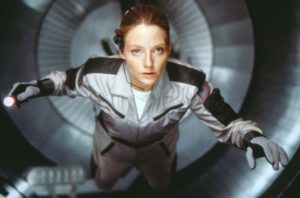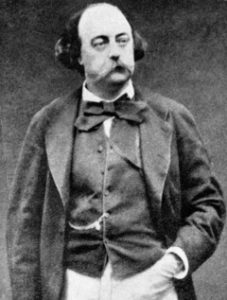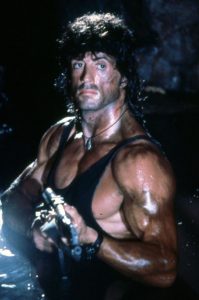I haven’t done one of these First Page things in a while. As you read through Brave Anon’s submission, ask yourself one question in particular: So what?
MUSICAL HAIRS
Gertrude Watson, known as “Gert” or “Gertie” to her friends, was on the landline phone in her small, disheveled office in the back of her music store. The door was closed and she was finishing up a call with Mr. Carney from the local high school. “Of course, Mr. Carney,” she reassured him. “We’ll make sure all the instruments have been unboxed and checked for defects before we deliver them to the school. That’s always been our policy.”
Mr. Carney was new to the town of Cannonsville, Tennessee, and this was the first time Gertie had dealt with him. Bless his heart, she thought to herself. Not only did he seem to have a substantial case of OCD, but he was a talker and hard to get off the phone. He had a habit of repeating himself over and over again on the simplest of things.
Someone knocked on her office door loud enough that Mr. Carney heard it on the other end of the line and stopped talking for a second. Gertie said, “There’s someone here for a very important meeting I have this morning and I’ve got to go now. I’ll give you a heads up call when we get the instruments in.” She waited for a second and then hung up, breathing a sigh of relief.
The knock came again and Gertie said, “Come in, come in.” The door opened. It was her assistant manager, Olivia Stanton, with some papers in her hand. “Thank goodness, Olivia. You saved me from that new band director at the high school. He is a nice enough man, but he just doesn’t seem to know when to stop talking.”
“I know,” Olivia said. “I spoke to him yesterday and had to finally excuse myself to go to the bathroom to get him off the phone. Being new to the school, I think he’s a little bit overly nervous and is trying too hard to do a good job.”
“I suppose you’re right,” Gertie said, “but I’ve got a business to run. I know the customer is always right. I just need to learn how to graciously end a phone conversation when the other party gets over talkative.”
Olivia held up her hand of paperwork and frowned. “Have you seen these bills yet from Tommy’s session last week? There’re a little bit over the top if you ask me.”
It’s me again. So . . . So what? In my view, the most critical problem with this page is the lack of a so what. What is at stake here? Who are the players, really? Truth be told, this reads like the warm-up to the beginning of a story rather than a story in and of itself.
As a self-taught writer, I’m not sure what “passive sentence construction” actually means, but I’ll apply it to virtually any sentence that relies on some conjugation of the verb, to be. Gertie was on the landline . . . the door was closed . . . she was finishing up a call . . . Carney was new . . . That’s a snore-o-rama. Consider: Gertie held the receiver . . . her closed door made the tiny office feel smaller . . . she wondered if the call would ever end . . . “I may be new,” he said . . .
The conjugated to-be+verb construction can’t be avoided in its entirety, but remember that better options always exist. (Before editing that sentence, I had written, “It’s important to remember that there are always better options.” Ha!)
Stories must always advance. Word-by-word, paragraph-by-paragraph, page-by page. If a sentence or scene does not advance either character or story, then it merely stops the story.
Let’s take another look at Brave Anon’s story. My comments are in bold type.
MUSICAL HAIRS
Gertrude Gertie Watson, known as “Gert” or “Gertie” to her friends, [We don’t need to know this detail, and it interrupts the flow of the story] was on the landline phone [what would a landline be if not a phone?]in her small, disheveled office in the back of her music store. The door was closed and she was finishing up a call with Mr. Carney from the local high school. “Of course, Mr. Carney,” she reassured him. “We’ll make sure all the instruments have been unboxed and checked for defects before we deliver them to the school. That’s always been our policy.”
Consider: “Of course we’ll make sure that the instruments are fine,” Gertie said into the handset of her landline. “We wouldn’t deliver a defective product to your school.” If her office weren’t so cluttered with incoming inventory, she’d pace. Or at least put her feet up. As it was, every surface of her store was stacked horns, woodwinds and strings.
Mr. [I would give him a first name, but that’s a stylistic thing that you might not agree with.] Carney was new to the town of Cannonsville, Tennessee, [We don’t need this detail yet, and including it makes the syntax awkward.] and this was the first time Gertie had dealt with him. [If he placed an order, how can this be the first time she’s dealing with him?] Bless his heart, she thought to herself. [This is your first moment of narrative voice. “Bless his heart” stands alone as a thought, and it establishes a Southern root for the story. Also, is it possible to think to someone other than oneself?] Not only did he seem to have a substantial case of OCD, but he was a talker and hard to get off the phone. He had a habit of repeating himself over and over again on the simplest of things. [Either show it or kill it. This entire paragraph is a squandered opportunity to show instead of telling.]
Consider: “I’m very serious about this,” Mr. Carney said in her ear. “I may be new to the community and to the high school faculty, but this band is very important to me. There can be no flaws.”
Gertie rolled her eyes. “As your business is important to me,” she said. “I don’t know how many times I can say the same thing until you believe me.”
“It’s not that I don’t believe you,” Carney said. “I just want to make sure you understand the importance—”
A perfectly-timed knock at her door saved her from having to choose between homicide or suicide. “Gotta go,” she said. “My next appointment just arrived.” She disconnected before Carney could argue. “Come in.”
Someone knocked on her office door loud enough that Mr. Carney heard it on the other end of the line and stopped talking for a second. Gertie said, “There’s someone here for a very important meeting I have this morning and I’ve got to go now. I’ll give you a heads up call when we get the instruments in.” [Say those lines of dialogue aloud. Do they sound real to you? They sound stilted to me.] She waited for a second [Why wait? Why not hang up as soon as possible?] and then hung up, breathing a sigh of relief.
The knock came [Knocks don’t come. Someone causes them to happen. A second knock does not advance the story unless there’s something different in the character of the knock. More urgent, maybe?] again and Gertie said, “Come in, come in.” The door opened. [Of course it did. Don’t need the detail.] It was h Her assistant manager, Olivia Stanton, entered with some papers in her hand. “Thank goodness, Olivia. [Don’t need this. The next sentence makes your point.] You saved me from that new band director at the high school Mr. Carney. He is a nice enough man, but he just doesn’t seem to know when to stop talking.”
Olivia laughed. “I know,” Olivia said. “He’s a talker. I spoke to him yesterday and had to finally excuse myself to go to the bathroom to get him off the phone. Being new to the school, I think he’s a little bit overly nervous and is trying too hard to do a good job.”
“I suppose you’re right,” Gertie said, “but I’ve got a business to run. I know the customer is always right. I just need to learn how to graciously end a phone conversation when the other party gets over talkative [This point has been pretty much flogged to death. Time to move on.] Consider: “What’ve you got?”
Olivia frowned as she held up her hand [stack?]of paperwork and frowned. “Have you seen these bills yet from Tommy’s session last week? There’re a little bit over the top if you ask me.” [“Tommy’s session” means nothing to the reader.]







